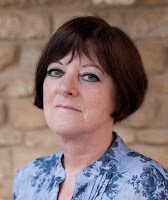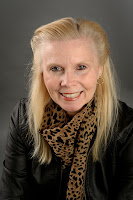 |
| Entrance to a death camp. Translation: Work Brings Freedom |
April 24th marks
Holocaust Remembrance Day. To honour this day, I approached my author friend,
Carol Browne, who wrote a book about a Holocaust survivor, to ask if she’d like
to get together to do an article about two people who had survived the Holocaust
and made a substantial difference in this world. Carol was totally on board, so
we put our heads together, and these are the two heroic people we chose…
Carol’s hero:
 |
| Elie Wiesel |
Born in Sighet,
Romania on 30th September, 1928, Elie Wiesel was a student of religion. In 1940 his family was
forced to live in a Jewish ghetto, along with many others, but worse was to
come in May, 1944, when Jews living in Sighet were deported to Auschwitz
concentration camp. Elie was then aged fifteen. He and his father were used as
slave labourers there before being sent on a forced march to Buchenwald, where
his father was so badly beaten by a German soldier he died. The camp was
liberated three months later and Elie was free, but he had lost his parents and
youngest sister to the Holocaust. His two older sisters miraculously survived.
Elie was a student
at the Sorbonne, 1948-51, and began a career in journalism. In 1960 his book La Nuit (Night) was published. It told of his experiences during the
Holocaust and became an international bestseller. Two novels followed: Dawn
(1961) and Day (1962). Altogether these books comprised a trilogy that
looked closely at man’s inhumanity to man.
Wiesel became an
American citizen in 1963. He went on to write many books and became a revered
activist and public orator, speaking out against injustices all over the world.
In 1978, Jimmy Carter appointed him as chair of the President's Commission on
the Holocaust. Among his many awards were the U.S. Presidential Medal of
Freedom and the French Legion of Honour's Grand Croix. He held teaching posts
at a number of universities and, together with his wife Marion, founded the
Elie Wiesel Foundation for Humanity, to combat the intolerance and injustice
that so concerned him.
In 1986, Wiesel’s
activism finally won him the Nobel Peace Prize.
On July 2, 2016,
Wiesel died at his home in Manhattan, aged 87. In spite of horrendous
experiences in the death camps, he had not lost his faith in humanity and never
failed in his duty to his fellow man. To quote the citation of his Nobel Peace
Prize, “Wiesel is a messenger to mankind. His message is one of peace,
atonement and human dignity. His belief that the forces fighting evil in the
world can be victorious is a hard-won belief.”
Sharon’s hero:
 |
| Otto and Anne Frank |
You may have heard of Otto Heinrich Frank through his famous
daughter, Anne. After his liberation from Auschwitz, Otto made his way back to
Amsterdam, June 3rd, 1945, to find out that his wife and later his
two daughters had perished in the death camps. Otto slowly learned to live with
his grief. “There is no point in brooding”, he wrote to a friend on March 16,
1946. “We have to go to living, go on building. We don’t want to forget, but we
mustn’t let our memories lead us to negativism.”
On the same day Otto Frank learned
of his daughters’ deaths, Miep Gies, a trusted employee and dear friend, gave
him Anne’s red-and-light-green checkered diary, her notebooks, and 327 loose
sheets of onionskin paper Miep had rescued and kept safe in her desk drawer.
Otto went to work on putting the papers in some kind of order, and typed out a
manuscript which he had professionally edited. After Otto gave a copy of the
corrected manuscript to several friends and relatives to read, he was urged to
publish the diary by a professor friend, who said, “It was the most moving
document about that time I know, and a literary masterpiece.”
Originally published with the title
Het Achterhuis (The House Behind) in
March 1947, the first American edition appeared in 1952 under the title Anne Frank: The Diary of a Young Girl.
Believe it or not, the diary didn’t become a bestseller until it was adapted
for the stage and performed throughout the world. On May 3, 1957, the Anne
Frank Foundation was established to preserve the building (263 Prinsengracht)
where the Franks hid during the war. Otto Frank insisted that the foundation
also establish a centre that would promote contact among young people of
different countries and religious backgrounds to prevent intolerance and
discrimination. On May 3, 1960, the Anne Frank House opened as a museum and to
this date receives over a million visitors each year. In the end, the Nazi
terror could not silence Anne’s voice, thanks to her father’s deep devotion to
bring Anne’s words out into the world.
About the
Authors:
 Born in Stafford in the
UK, Carol Browne was raised in Crewe, Cheshire, which
she thinks of as her home town. Interested in reading and writing at an early
age, Carol pursued her passions at Nottingham University and was awarded an
honours degree in English Language and Literature. Now living and working in
the Cambridgeshire countryside, Carol usually writes fiction and is a
contracted author at Burning Willow Press. Being
Krystyna, published by Dilliebooks on 11th November, 2016, is her first
non-fiction book.
Born in Stafford in the
UK, Carol Browne was raised in Crewe, Cheshire, which
she thinks of as her home town. Interested in reading and writing at an early
age, Carol pursued her passions at Nottingham University and was awarded an
honours degree in English Language and Literature. Now living and working in
the Cambridgeshire countryside, Carol usually writes fiction and is a
contracted author at Burning Willow Press. Being
Krystyna, published by Dilliebooks on 11th November, 2016, is her first
non-fiction book.
Being Krystyna; A story of
survival in WWII
It’s 2012, the year of
the London Olympics, and for young Polish immigrant Agnieszka, visiting fellow
countrywoman Krystyna in a Peterborough care home is a simple act of kindness.
However, the meeting proves to be the beginning of a life-changing experience.
Krystyna’s stories
about the past are not memories of the good old days but recollections of
war-ravaged Europe: The Warsaw Ghetto, Pawiak Prison, Ravensbrück Concentration
Camp, and the death march to freedom.
The losses and ordeals
Krystyna suffered and what she had to do to survive, these are horrors
Agnieszka must confront when she volunteers to be Krystyna’s biographer.
Will Agnieszka find a
way to accomplish her task, and, in this harrowing story of survival, what is
the message for us today?
 Sharon
Ledwith
is the author of the middle-grade/young adult time travel adventure series, THE
LAST TIMEKEEPERS, and the teen psychic mystery series, MYSTERIOUS TALES FROM
FAIRY FALLS. When not writing, researching, or revising, she enjoys reading,
exercising, anything arcane, and an occasional dram of scotch. Sharon lives a
serene, yet busy life in a southern tourist region of Ontario, Canada, with her
hubby, one spoiled yellow Labrador and a moody calico cat.
Sharon
Ledwith
is the author of the middle-grade/young adult time travel adventure series, THE
LAST TIMEKEEPERS, and the teen psychic mystery series, MYSTERIOUS TALES FROM
FAIRY FALLS. When not writing, researching, or revising, she enjoys reading,
exercising, anything arcane, and an occasional dram of scotch. Sharon lives a
serene, yet busy life in a southern tourist region of Ontario, Canada, with her
hubby, one spoiled yellow Labrador and a moody calico cat.
Learn more about Sharon on her WEBSITE and BLOG. Stay connected on FACEBOOK, TWITTER, GOOGLE+, and GOODREADS. Check
out THE LAST
TIMEKEEPERS TIME TRAVEL SERIES Facebook page.
The Last
Timekeepers and the Dark Secret, Book #2:
Fourteen year-old Jordan Jensen
always considered himself a team player on and off the field, until the second
Timekeeper mission lands him in Amsterdam during World War Two. Pulled into the
world of espionage, torture, and intolerance, Jordan and the rest of the
Timekeepers have no choice but to do whatever they can to stay one step ahead
of the Nazis in order to find and protect a mysterious book.
With the help of the Dutch
Resistance, an eccentric baron, Nordic runes, and an ancient volume originating
from Atlantis, Jordan must learn that it takes true teamwork, trust, and
sacrifice to keep time safe from the evils of fascism. Can Jordan find the hero
within to conquer the darkness surrounding the Timekeepers? If he doesn’t, then
the terrible truth of what the Nazis did will never see the light of day.


Thank you for posting and honoring this day. -Leigh
ReplyDeleteYou're welcome, Leigh! Cheers for stopping by! Appreciate it!
DeleteIt was great to collaborate with you on this, Sharon. Many thanks :)
ReplyDeleteYou're welcome, Carol! Great to write a worthy post with you too. All the best with your writing career!
DeleteThis post is very moving. It is wonderful to write about these two heroes, survivors of a terrible time. Visiting Anne Frank's house last year moved me to tears and I came home and reread her book.
ReplyDeleteThank you, Darlene! Oh, I'd love to visit Anne Frank's house, just to feel her presence in those walls. Such a heroic person!
Delete